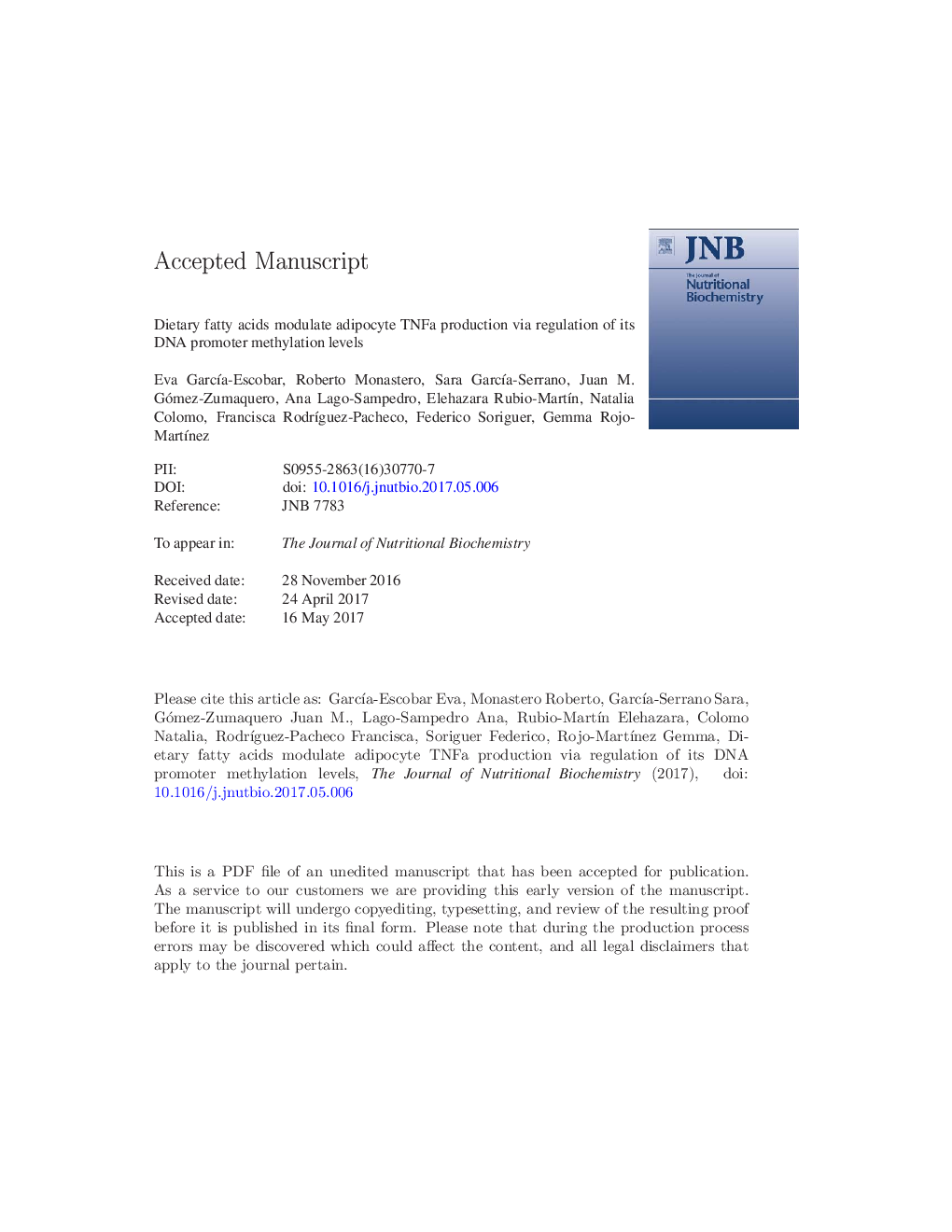| Article ID | Journal | Published Year | Pages | File Type |
|---|---|---|---|---|
| 5512875 | The Journal of Nutritional Biochemistry | 2017 | 33 Pages |
Abstract
The factors regulating TNF alpha (TNFa) levels could be considered therapeutic targets against metabolic syndrome development. DNA methylation is a potent regulator of gene expression and may be associated with protein levels. In this study we investigate whether the effect of dietary fatty acids on TNFa released from adipocytes might be associated with modifications of the TNFa promoter DNA methylation status. A group of rats was assigned to three diets with a different composition of saturated, monounsaturated and polyunsaturated fatty acids. Samples of visceral adipose tissues were taken for adipocyte isolation, in which released TNFa levels were measured, and for methylation and expression studies. In addition, 3 T3-L1 cells were treated with palmitic, oleic and linoleic acids, with and without 5-Azacitydine (5-AZA). After treatments, cells and supernatants were included in the same analyses as rat samples. TNFa promoter methylation levels, gene expression and secretion were different according to the diets and fatty acid treatments associated with them. Cells treated with 5-AZA displayed higher TNFa levels than in the absence of 5-AZA, without differences between fatty acids. According to our results, dietary fatty acid regulation of adipocyte TNFa levels may be mediated by epigenetic modifications of the TNFa promoter DNA methylation levels.
Keywords
Related Topics
Life Sciences
Biochemistry, Genetics and Molecular Biology
Biochemistry
Authors
Eva GarcÃa-Escobar, Roberto Monastero, Sara GarcÃa-Serrano, Juan M. Gómez-Zumaquero, Ana Lago-Sampedro, Elehazara Rubio-MartÃn, Natalia Colomo, Francisca RodrÃguez-Pacheco, Federico Soriguer, Gemma Rojo-MartÃnez,
